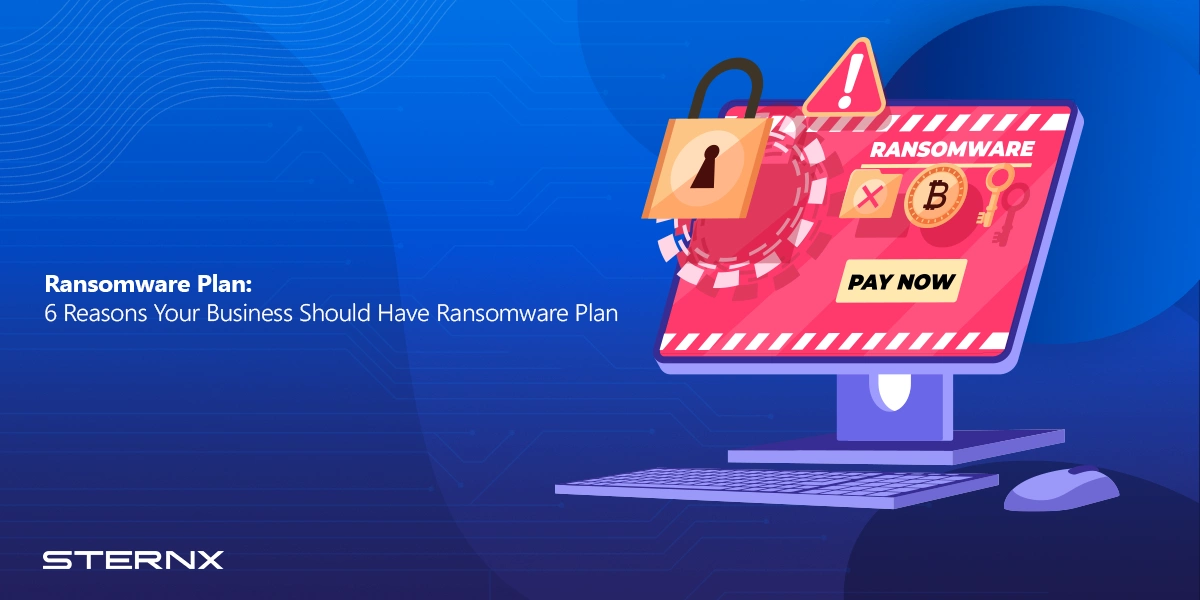Table of Contents
In the ever-evolving landscape of cybersecurity threats, ransomware has emerged as one of the most formidable and costly challenges facing businesses of all sizes. As the world becomes increasingly digitized, the risk of falling victim to this insidious form of cyber attacks continues to escalate. In 2024, having a comprehensive ransomware protection plan in place is no longer an option – it’s a necessity for organizations that value their data, operations, and reputation.
But before we delve into the reasons why a ransomware plan is crucial, let’s first understand what ransomware is and how it operates.
What is Ransomware?
Ransomware is a type of malicious software designed to encrypt files on a computer or network, effectively holding them hostage until a ransom is paid to the attackers or ransom demands are met. Once a system is infected, the ransomware encrypts valuable sensitive data, rendering it inaccessible to the victim. The attackers then demand from the victim to pay the ransom, often in cryptocurrency, in exchange for a decryption key that can unlock the encrypted files.
The consequences of a successful ransomware attack can be devastating, leading to sensitive data loss, operational disruptions, financial losses, and reputational damage. As ransomware threats continue to evolve and become more sophisticated, businesses must be proactive in their network security defenses.
Here are the top 6 reasons why your business should have a ransomware plan in 2024:
- Protect Your Valuable Data:
In today’s data-driven world, information is one of the most valuable assets for any business. A ransomware attack can render your organization’s critical data inaccessible, potentially crippling operations and causing significant financial losses. Having a robust ransomware plan in place can help you safeguard your data and minimize the risk of irreversible data loss.
- Maintain Business Continuity:
Ransomware attacks can bring business operations to a grinding halt, resulting in costly downtime and lost productivity. By implementing a ransomware plan, you can minimize disruptions and ensure that your organization can continue functioning even in the face of an attack. This includes having effective backup and recovery strategies, as well as contingency plans for essential systems and services.
- Mitigate Financial Losses:
The financial impact of a ransomware attack can be staggering. In addition to the potential ransom payment demanded by attackers, businesses may also face costs associated with data recovery, system repairs, legal fees, and lost revenue due to operational disruptions. A comprehensive ransomware plan can help you mitigate these financial losses by implementing preventive measures and effective incident response strategies.
- Protect Your Reputation:
A successful ransomware attack can severely damage a business’s reputation, eroding customer trust and impacting future growth prospects. By having a robust ransomware plan in place, you demonstrate your commitment to cybersecurity and data protection, which can help maintain your organization’s credibility and trustworthiness in the eyes of customers, partners, and stakeholders.
- Comply with Regulations and Industry Standards:
Many industries and regions have specific regulations and standards related to data protection and cybersecurity. Failing to comply with these regulations can result in hefty fines, legal consequences, and even the loss of operating licenses. A well-designed ransomware plan can help ensure that your organization meets the necessary compliance requirements, mitigating the risk of penalties and legal issues.
- Stay Ahead of Evolving Threats:
The ransomware threat landscape is constantly evolving especially in the raise of remote work, with cybercriminals continuously developing new tactics and techniques to evade defenses. By having a comprehensive ransomware solution in place, you can stay ahead of these evolving threats. Regular updates, employee training, and leveraging the expertise of cybersecurity companies providing ransomware as a service or professionals can help you adapt your defenses to counter the latest ransomware variants and attack vectors.
Steps to Protect Your Business from Ransomware
Now that we’ve explored the reasons why a ransomware plan is essential, let’s discuss the steps your business can take to protect itself from this growing threat:
Implement Robust Backup and Recovery Strategies:
One of the most effective defenses against this type of malware is having a reliable backup and recovery plan in place. Regular backups of critical data and systems can help you restore operations quickly in the event of an attack, minimizing data loss and downtime.
Educate and Train Employees:
Human error is often a significant contributing factor in ransomware infections. Providing regular cybersecurity awareness training to employees can help them recognize and avoid common ransomware tactics, such as phishing scams, phishing emails, and suspicious links or attachments.
Keep Software and Systems Up-to-Date:
Outdated software and operating systems can have vulnerabilities that cyber criminals exploit to gain access or regain access to systems. Ensuring that all software, applications, and systems are kept up-to-date with the latest security patches and updates can help mitigate the risk of ransomware infections.
Implement Advanced Security Solutions:
Deploying advanced security solutions, such as endpoint protection, firewalls, and intrusion detection/prevention systems, can help detect and prevent ransomware attacks before they can cause significant damage.
Leverage Managed Cybersecurity Services:
For businesses with limited in-house cybersecurity resources, partnering with a reputable managed cybersecurity service provider can be a valuable investment. These services offer round-the-clock monitoring, threat intelligence, and expert guidance in implementing effective ransomware defenses.
Develop and Test an Incident Response Plan:
Having a well-defined incident response plan is crucial for minimizing the impact of a ransomware attack. This plan should outline clear roles and responsibilities, communication protocols, and step-by-step procedures for containing and remediating the threat.
By implementing these steps and prioritizing a comprehensive ransomware plan, your business can significantly reduce the risk of falling victim to this devastating form of cybercrime. Remember, ransomware is a constantly evolving threat, and complacency can be costly. Stay vigilant, stay prepared, and protect your business from the potential consequences of a successful ransomware attack.

